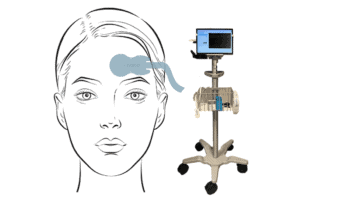
More than 90 papers from China have been recognized with a top-cited paper award for 2024 from IOP Publishing, which publishes Physics World. The prize is given to corresponding authors who have papers published in both IOP Publishing and its partners’ journals from 2021 to 2023 that are in the top 1% of the most cited papers.
Among them are quantum physicist Xin Wang from Xi’an Jiaotong University and environmental scientist Huijuan Cui from the Institute of Geographic Sciences and Natural Resources Research.
Cui, who carries out research into climate change, says that China’s carbon neutrality goal has attracted attention all over the world, which may be a reason why the paper, published in Environmental Research Letters, garnered so many citations. “As the Chinese government pays more attention on sustainability issues like climate change…we see growing activities and influence from Chinese researchers,” she says.
A similar impact can be seen in Wang’s work in “chiral quantum networks”, which is published in Quantum Science and Technology, and is equally seen as an area that is quickly gaining traction.
Citations have an important role in Chinese research, and they can also highlight a research topic’s growing impact. “They indicate that what we are studying is a mainstream research field,” Wang says. “Our peers agree with our results and judgement of the field’s future.” Cui, meanwhile, says that citations reflect a “a positive acceptance and recognition of the quality of the research”.
Wang, however, notes that citations and impact doesn’t necessarily happen overnight and that researchers must not base their work’s impact on instantly generating citations.
He adds that some pioneering papers are not well-cited initially with researchers only beginning to realize their value after several years. “If we are confident that our findings are important, we should not be upset with its bad citation but keep on working,” he says. “It is the role of the researcher to stick with their gut to uncover their key research questions. Citations will come afterwards.”
Language barriers
When it comes to Chinese researchers getting their research cited internationally, Wang says that the language barrier is one of the greatest challenges. “The readability of a paper has a close relation with its citation,” adds Wang. “Most highly cited papers not only have an insight into scientific problems, but also are well-written.”
He adds that non-native speakers tend to avoid using “snappy” expressions, which often leads to a conservative and uninspiring tone. “These expressions are grammatically correct but awkward to native speakers,” Wang states.
Despite the potential difficulties with slow citations and language barriers, Cui says that success can be achieved through determination and focussing on important research questions. “Constant effort yields success,” adds Cui. “Keep digging into interesting questions and keep writing high-quality papers.”
That view is backed by Wang. “If your research is well-cited, congratulations,” adds Wang. “However, please do not be upset with a paper with few citations – it still might be pioneering work in its field.”
- For the full list of top-cited papers from China for 2024, see here. Xin Wang’s and Huijuan Cui’s award-winning research can be read here and here, respectively



